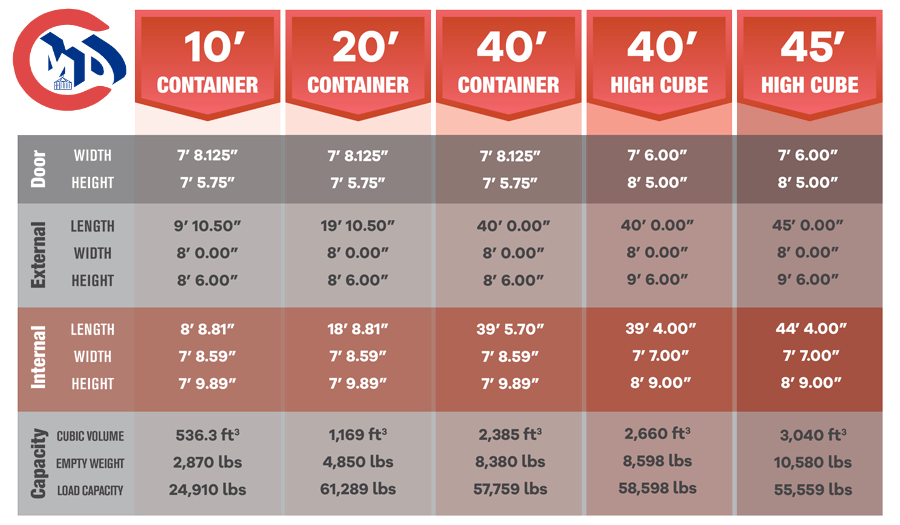Shipping Containers Around the World: How Major Cities Are Maximizing Shipping Container
What we think of as shipping containers are actually called intermodal containers, because they are designed to work with several different modes of transportation. The box on a boxcar train, a stack of them on a cargo ship and the boxes hauled around by cranes in shipyards are all the same. They were designed for exactly this modularity, and have become ubiquitous around the world. So much so that many cities are finding they have to deal with excess shipping containers in a number of ways.
Restrictions in a Port City
In some places around the world, shipping containers have proven to be a boon for local artists, students and other creative types. How is this possible?
Take Seattle for example. As one of the largest ports in the United States, Seattle is filled with containers in every stage of use. Shelterkraft is a new company on the scene taking advantage of the older shipping containers that have no current use beyond cluttering the skyline.
Shelterkraft takes these containers and remodels them into self-contained living spaces. They have modern appliances. They have recycled cardboard countertops. They have low energy lighting. They’re recycled, they’re green and they’re affordable. Best of all, they’re made out of containers, so they’re by default highly mobile.
While small, the market for these container housing units is large and growing. People use them as mobile homes. They work well as backyard cabins, additions or stand-alone office spaces. What more can they ask for in a city with restrictive building codes?
Expensive Nights on the Town
Berlin is in a similar situation for different reasons. It is a haven for students and a generally young population, with a thriving and active nightlife. The problem that most of these people encounter, however, is the aging living infrastructure of the city. What housing is available is generally expensive, and for the money, it lacks many of the basic amenities considered essential for modern life.
The solution, as proposed by the developer Jörg Duske, is shipping containers. Specifically, a large number of containers stacked, built together, secured in place and turned into a single large housing complex.
Shipping containers save quite a bit of money on new construction, but they aren’t perfect. They’re metal boxes, after all, and that means they have problems with insulation. However, a similar project in Holland has proven the concept, and the method for converting a shipping container into livable space is well known. The advertising is the issue — how does someone attract people to their housing when it’s made out of containers? Thankfully, the low price tag and the population of Berlin should make it easy.
Cultural Impact
The Taiwan Taichung City Cultural Center was looking for proposals for new architecture, and the New York design company LOT-EK brings in the innovation. Once again, they choose to use shipping containers as the primary building material, but not in the Lego brick style of the projects in Seattle and Berlin.
LOT-EK is a company with over two decades of experience in working with shipping containers, so their design shows some promise. The idea of taking 1,620 containers and chopping, cutting and rearranging them into a shape suitable for a cultural center might be a little extreme. Will the proposal be chosen? Will the project make it off the ground? These questions remain to be answered sometime late in 2013.
Disaster Relief
The concept of small mobile homes built inside mobile, durable shipping containers has widespread applications. One of them being put to the test in the US right now is disaster relief. Mods International is a company that sprung up after the hurricane Katrina disaster, and they have been operating as disaster relief ever since.
What do they do? They build single-unit homes out of containers and ship them to areas like Moore Oklahoma, where tornadoes recently devastated the city. People whose homes have been destroyed can take up temporary residence in these shipping containers turned living spaces, as a cheap alternative to living in hotels or tent cities or trekking across the country to find a new place to take up residence.
Not All Sunshine and Rainbows
The City of Campbell River may have something to say on the matter of shipping containers as permanent fixtures in the city. They don’t much like the idea of people using shipping containers as unsightly building accessories. As they say, storage containers are designed for industrial use, not for residential fixtures.
They foresee that the expansion of the use of storage containers in residential and commercial zones will cause a visual blight on the property, decreasing values and driving away potential investors, tourists and residents. They city is, then, considering restrictive laws on the use of these shipping containers. Chances are, a converted container home will be outright denied to the people of Campbell River.
Not Just for Living In
Of course, containers are still used for their primary purpose, that being shipping goods from one place to another. Baltimore may be seeing a boom in shipping in the near future, as three of the largest shipping companies in the world form an alliance to help reduce the costs associated with shipping.
The three companies, known collectively as the P3 Network, will maintain their own individual contract and customers, but they will help each other containers on a shared fleet of ships. This greatly improved efficiency in the fleet, leading to lower costs and higher profits all around. In addition, the increased shipping will help ports — like Baltimore — that only saw traffic from one of the three companies in the alliance.
It seems that trends for re-purposing old containers as living space has a lot of potential. Low cost, low space housing on a modular design makes perfect sense for people who have low space requirements and low income. Modular rooms that can be constructed into larger complexes make low-income housing in large numbers extremely attractive.
Southwest Mobile Storage is an industry leader in providing commercial storage containers and mobile site offices to professionals and individuals in need of simple or specialized solutions. Our company specializes in renting, selling and modifying steel ISO shipping containers. If you are looking for a portable storage unit for your construction site, a storage container to provide temporary storage or a moving container Southwest Mobile Storage handles it all.
Custom Shipping Container Dimensions






